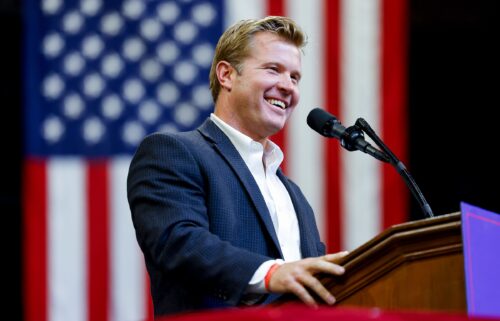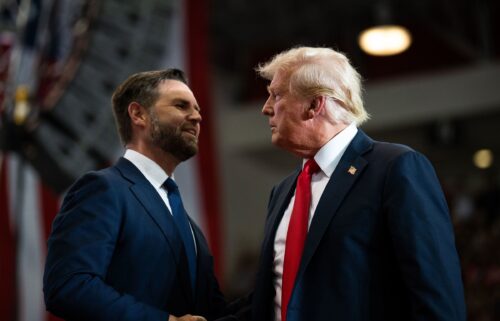In rebuff to Bannon, judge puts limits on public disclosure of evidence in his case

By Sara Murray and Tierney Sneed, CNN
A federal judge on Friday rejected Steve Bannon‘s challenge to the limits the Justice Department was seeking on public disclosure of evidence the government turned over to him in his case.
Several media organizations had also challenged the Justice Department’s proposed limits.
US District Judge Carl Nichols — who is presiding over the criminal contempt proceedings the department has brought against the ex-adviser to former President Donald Trump — issued a protective order that largely adopted the government’s proposals for restricting the types of evidence from the case that could be shared publicly.
Bannon, who has pleaded not guilty to the contempt of Congress charge brought by the department, is set to go to trial July 18.
Bannon’s team and the government were at odds over whether there should be a protective order over materials that would emerge in the discovery process. Bannon’s team argued the public had a right to know the details of the case. The government said the records should remain private, claiming Bannon was aiming to “try this case in the media rather than in court,” and arguing that making documents public before trial could sway witness testimony.
Nichols ordered Friday that records unearthed in the discovery process remain under a protective order. The order does not apply to documents that are publicly available or records that Bannon’s team obtains independent of the discovery process.
CNN was among several media organizations that joined in challenging the proposed protective order.
The prosecution stems from Bannon’s decision not to cooperate with the House January 6’s investigation, with the Justice Department bringing the case after a referral from the House.
At a court hearing on Tuesday, Bannon’s legal team said that they would like to share with the public, among other things, internal congressional communications about the subpoena the House January 6 committee issued the Trump ally.
“We do believe the committee’s discussions about Mr. Bannon’s subpoena … is the business of the public,” David Schoen, an attorney for Bannon, said at the hearing. The Justice Department had said in court filings that Bannon was seeking “to abuse criminal discovery to try this case in the media rather than in court.”
There will likely be other pre-trial disputes over discovery that Nichols will need to resolve. Bannon’s team has also previewed an effort to obtain additional internal documents — beyond what already has been turned over to him — from Congress, as well as records related to the Justice Department’s decision to charge him. Prosecutors have signaled that they do not think Bannon is entitled to those additional documents.
The-CNN-Wire
™ & © 2021 Cable News Network, Inc., a WarnerMedia Company. All rights reserved.


